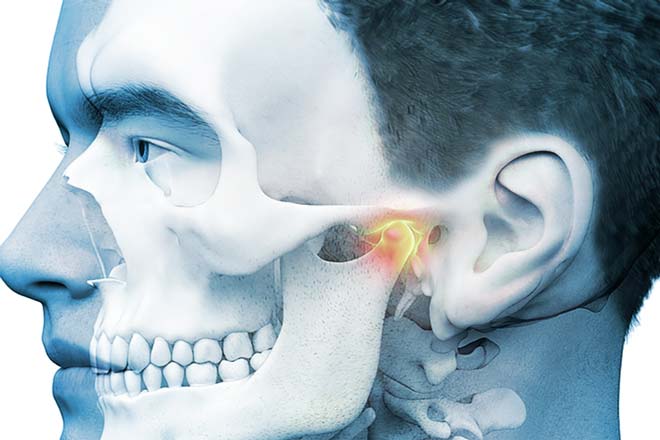
What is Neuromuscular Dentistry?
Neuromuscular dentistry is an area of study in professional dentistry that is focused on the health relationships between the teeth, jaw joints, facial structures (bones, muscles and nerves) and the overall musculoskeletal (orthopedic) health of the body.
Marietta dentist Dr. Chris Anderson has studied these relationships and applied neuromuscular principles in addressing the dental health needs of his patients for many years.
A Balanced Bite (and why it matters)
Of special interest and focus for Dr. Anderson is the role that the coordinated balance between the temporomandibular joints (TMJ) and our bite play in our personal health and comfort.
When we open and close our mouth or chew food, in addition to using our teeth and jaw muscles, the interconnected group of facial muscles, nerves, soft tissue, bones and jaw joints (TMJ) are also set in motion. Neuromuscular dentistry considers each of these components as part of a whole system, with each affecting the other.
If we are in good dental and physical health, the normal functions of eating and speaking are painless. When we have dental problems like tooth decay or periodontal disease, our bite changes. When Dr. Anderson evaluates these and other dental problems for treatment, in addition to treating the disease or infection, he looks beyond the teeth to determine if the dental and bite problems are impacting the TMJ or facial muscles.
The normal function of biting and chewing food creates pressure and resistance between the upper and lower teeth. The goal of restorative dentistry is to create bite ‘balance’ to ensure that the teeth are in good condition and able to withstand and distribute the biting forces without harming other teeth or causing trauma and injury to the jaw joints.
The nerves that serve our teeth, face and skull are interconnected throughout the body. In cases of temporomandibular joint dysfunction (TMD), when there is joint inflammation and excess stress on the jaw joints that lead to pain symptoms, a series of other seemingly unrelated pain symptoms may occur, including tension headaches, back, shoulder and neck pain, fatigue, poor posture, or earaches, to name a few.
Neuromuscular dentistry teaches us that bite balance, by affecting the nerves, muscles, joints and tissue that surround and support the teeth, can influence the other muscles and joints within the body.
Comprehensive Diagnostics and Treatment for Dental Pain Symptoms
Marietta TMJ dentist Dr. Chris Anderson has completed Level 2 certification through the Center for Neural Occlusion.
This training includes coursework in advanced dental occlusion diagnostics, restorative and orthodontic treatments, and use of digital technologies in TMJ/TMD analysis. To receive this certification, a CNO instructor has observed while Dr. Anderson provided occlusal therapy for actual patients at our Georgia Dental Medicine office in Marietta.
During your complete dental examination, Dr. Anderson thoroughly evaluates the teeth, gums and oral soft tissues to look for signs of disease or infection. He will talk with you about your dental and medical history and observe jaw movement to listen, look and feel for any signs of clicking, popping or joint vibration or shifting that may require further analysis.
If you exhibit symptoms related to the jaw joints, Dr. Anderson may recommend a detailed occlusal (bite) analysis and TMJ testing. Our practice is equipped with 3D imaging and TMJ testing technology to assist him in diagnosing TMJ disorders or problems with the facial muscles, bite or teeth alignment.
TMJ and Dental Pain Relief at Georgia Dental Medicine
Patients that come to us seeking answers to their unexplained dental and jaw pain frequently comment about how relieved they feel after experiencing Dr. Anderson's in-depth approach and commitment to find and solve their problem.
Everyone deserves a pain-free smile.
If you are experiencing dental pain or other problems related to your teeth, bite or jaw joints, we encourage you to Contact Georgia Dental Medicine to schedule a consultation with Dr. Anderson.
